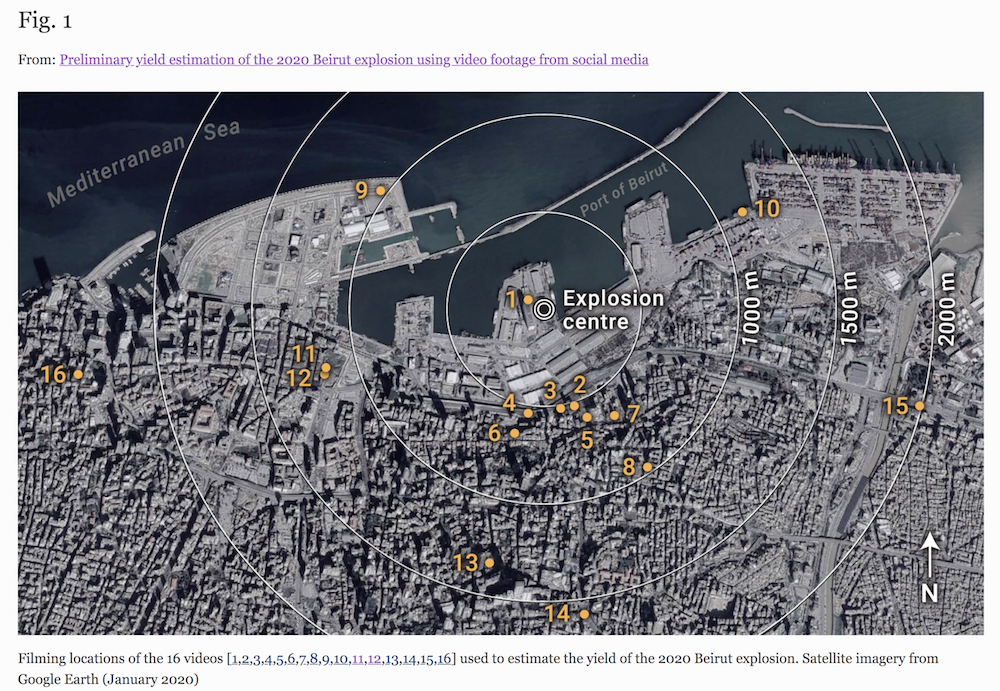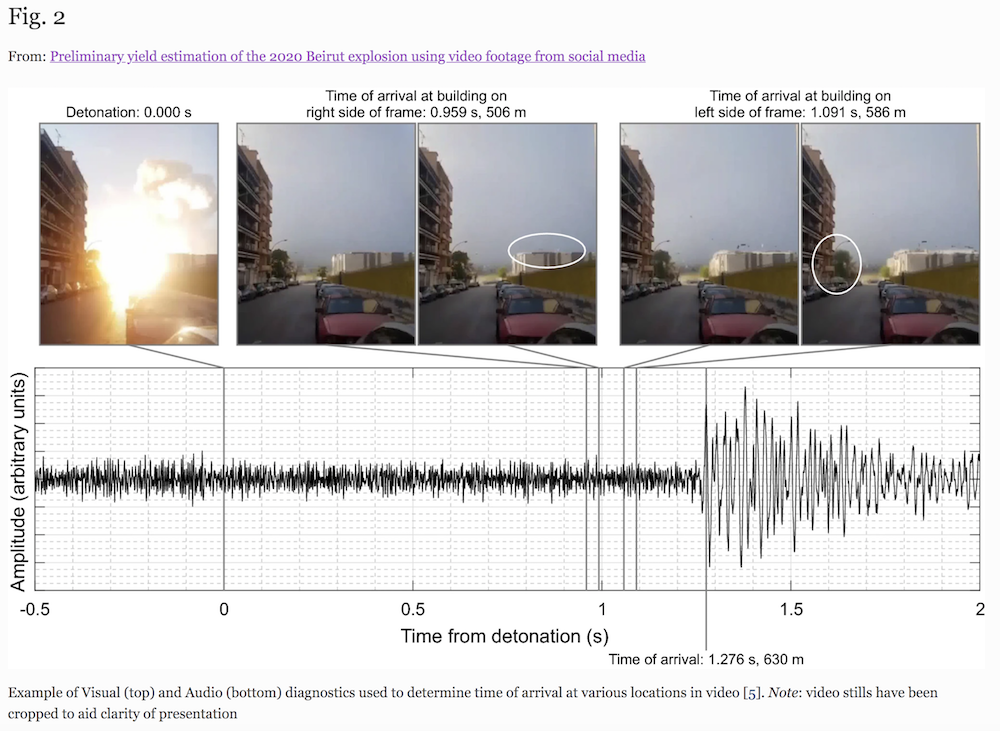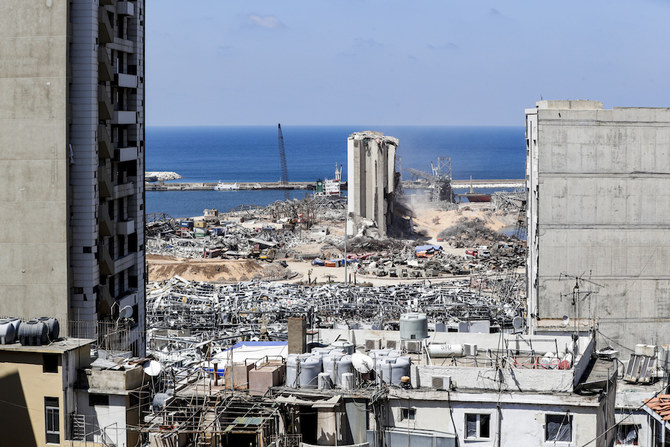LONDON: The Beirut port disaster was one of the largest non-nuclear explosions ever recorded, according to a UK university study.
The devastating blast yielded the equivalent of between 500 and 1,100 tons of TNT, researchers from Sheffield University’s Civil and Structural Engineering department said.
The report put the blast, which tore through the Lebanese capital and killed more than 190 people on Aug. 4, at one-twentieth the strength of the atomic bomb dropped on Hiroshima in 1945, which was in the range of 13-15 kilotons of TNT equivalent.
The study, by the university’s Blast and Impact Engineering Research Group, was published in the journal Shock Waves. It used videos and imagery from social media to determine how the explosion’s shockwave flew across Beirut and the impact it left in its wake.

(Screenshot: "Preliminary yield estimation of the 2020 Beirut explosion using video footage from social media" - University of Sheffield Department of Civil and Structural Engineering.)
“The Beirut explosion is interesting because it sits almost directly in a sort of no-man’s land between the largest conventional weapons and nuclear weapons,” Dr. Sam Rigby, from the research group, told BBC News. “It was about 10 times bigger than the biggest conventional weapon, and 10 to 20 times smaller than the early nuclear weapons.”
Judging by the study’s findings, the Beirut blast was in the top 10 in terms of the most powerful accidental man-made explosions in history, Rigby added. “Beirut’s certainly the most powerful non-nuclear explosion of the 21st century.”
The group hopes its findings can assist emergency planners deal better with similar disasters in the future, with data assisting first responders to help predict the nature of injuries and any structural damage at various distances from a blast.
“The disaster that hit Beirut this summer was devastating and we hope that nothing like that ever happens again. This was an unprecedented event because never before has such a large explosion been so well-documented,” Rigby said. “The reason why we decided to analyse the explosion is because, as engineers, it’s our job to use the skills and resources we have at our disposal to solve problems and ultimately to help people.

(Screenshot: "Preliminary yield estimation of the 2020 Beirut explosion using video footage from social media" - University of Sheffield Department of Civil and Structural Engineering.)
“After seeing the events unfold, we wanted to use our expertise in blast engineering to help understand what had happened in Beirut and provide data that could be used to help prepare for, and save lives in such events should they ever happen again.
“By understanding more about the power of large-scale accidental explosions like the one that occurred in Beirut, we can develop more accurate predictions of how different buildings will be affected, and the types of injuries there are likely to be at different distances from the blast.”
Investigations into the disaster determined that the explosion was the result of an accidental detonation of nearly three kilotons of ammonium nitrate, which had been stored without proper safety measures in one of the port’s warehouses since 2014.
The blast also injured more than 6,500 people.
*****
READ MORE: Beirut reconstruction making little progress
Lebanon asks Interpol to issue arrest warrants for two Russians over Beirut blast
Israel’s Netanyahu says Hezbollah has ‘arms depot’ in Beirut
*****
“Think of it like a kid on a swing,” Rigby said. “If you push the child and see how far they go, you can then work out how hard the push was. That's essentially how we work out the yield.
“When we know what the yield is from these sorts of events, we can then work out the loading that comes from that. And that tells us how to construct buildings that are more resilient. Even things like glazing. In Beirut, glazing damage was reported up 10 km away from the center of the explosion, and we know falling glass causes a lot of injuries.”
According to the study, the explosion released the equivalent of around 1GWh of energy in milliseconds, which is equal to the hourly energy generated by three million solar panels or 400 wind turbines — enough to power 100 homes for a year.



























